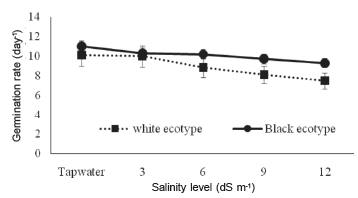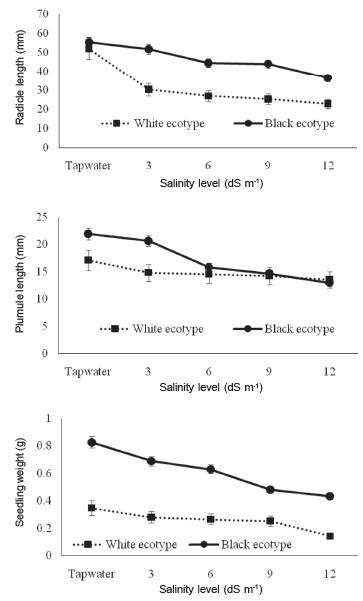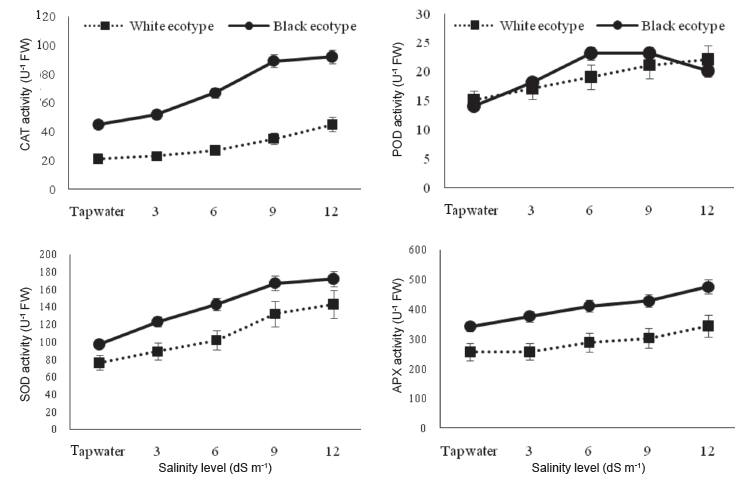ABSTRACT
Salinity is among the most common and severe abiotic stresses that drastically affects crop productivity all over the world. To evaluate the effect of salt stress on seed germination, early growth, antioxidant enzyme activity and ABA content of chicory ecotypes (Cichorium intybus), a factorial experiment was conducted at College of Agriculture, Shiraz University in 2014 based on completely randomized design with four replications. The treatments comprised five salinity levels (tap water, 3, 6, 9, 12 dS m-1) of sodium chloride on the ecotypes of Sefid Shiraz and Siyah Shiraz. The results showed that germination characteristics and primary seedling growth decreased in both ecotypes with increasing in salinity severity. The effects of salinity on radicle and plumule length as well as seedling weight were the same as its effects on seed germination. The effect of salt stress on antioxidant enzyme activity (especially catalase) and ABA content were significant which they were enhanced with increasing salinity level; the Siyah Shiraz ecotype performs better than the Sefid Shiraz under high salinity, as indicated by lower decrease in germination characteristics and primary growth and higher antioxidant enzyme activity as well as ABA content. These facts should be taken into consideration in the economic cultivation of this valuable horticultural and medicinal plant and this data would be useful for the crop breeding projects.
Keywords:
salt stress; chicory ecotypes; germination characteristics; antioxidant enzyme activity







